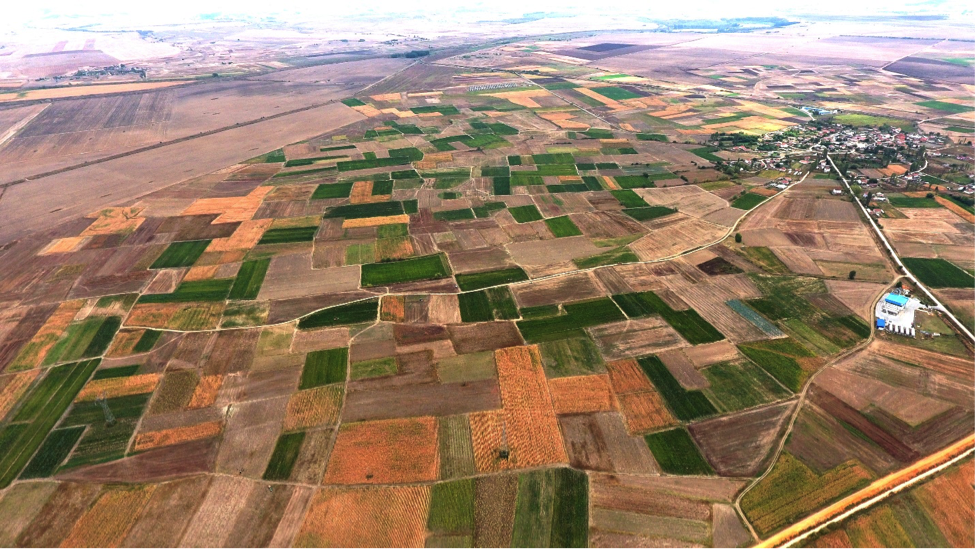It happened on the 29th of January 2020 in Bitola in North Macedonia. More than 200 landowners from Egri village gathered in Bitola’s theatre, taking turns to vote on the Land Consolidation Plan. The serious faces of men and women, old and young, were a sign that they may have been as nervous as we were ourselves. The voting on the first majority based land consolidation ever in the country was coming to an end. And then the result was there….. 83% in favour of land consolidation! The villagers were cheering. Our team was overwhelmed by emotion. Egri village just set a decisive step into the future. All 336 hectares of land will be reallocated, the number of parcels will go down from 874 to 260, the road and drainage network will be extended and the irrigation network improved.
The voting was a key moment for our joint Ministry/FAO team. The Egri project was the first majority based land consolidation meant to test the new land consolidation law. North Macedonia has been setting careful though determined steps to introduce land consolidation by thorough analysis, by making a land consolidation strategy, introducing a new law and preparing an operational programme. Like many other countries in the region, this happens against the historic context of enforcements and infringements related to land. Coming to a Land Consolidation Plan in Egri had been a winding road itself.. The legal procedures needed adjustments and we were confronted with many landowners living abroad, informal transactions, unsolved inheritance cases, mortgages on land etc. The tension during the voting had clear reasons.

Many times our team was challenged during the process: Why take all this effort? Why can’t the land market solve this? If farms become too small or too fragmented, they will be taken over by others leading to growth of remaining farms. So why to intervene?
Unfortunately land markets seem to have little capacity to correct major deficiencies in land structures. North Macedonia illustrates this by the cold figures: despite the availability of a well-functioning land register and affordable procedures for land transactions, the average size of farms in North Macedonia declined from 2,6 to 1,6 ha between 1994 and 2007 and reached an average size of 1,85 ha in 2013. Land mobility would need to raise in an unprecedented way to come to farm sizes that are competitive on national and international markets.
Exchange of experience in the professional network called LANDNET, shows that many European countries have policies and instruments to guide and complement land markets. Many Central and Eastern European countries are introducing instruments like land consolidation and many Western European countries like the Netherlands, Germany and Denmark have policies and instruments since the last 100 years that are continuously updated to new challenges. Land consolidation certainly isn’t the only instrument. Many countries have introduced other instruments like land banking, mediation in lease, schemes to stimulate early retirement, restrictions to established rules of succession or powerful combinations of these measures to reduce fragmentation and to increase the size of farms.
Each country has its own characteristics to learn from. This counts in and outside of Europe. Vietnam for example, is aiming to do land consolidation with land use rights instead of ownership rights. First attempts in Egypt need to deal with the huge number of informal land transactions. When can the agricultural land market solve problems with land fragmentation and when are land consolidation and/or other land management instruments needed? What was the main factor of success in your case? What works or does not work? What is the main barrier to overcome?
We are curious to hear your stories, to share experience and to stimulate the debate on this!



